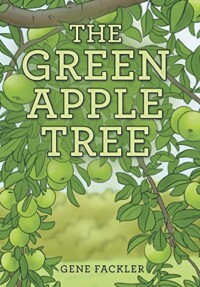Title: The Green Apple Tree
Author: Gene Fackler
Publisher: Brilliant Books Literary
ISBN: 979-8-88945-023-8
Pages: 261
Genre: Literary Fiction
Reviewed by: Candace L. Barr
Pacific Book Review
The Green Apple Tree is hard to classify, as there is no straightforward narrative, so I’ve chosen to categorize it based on Gene Fackler’s illustrative writing style, which is heavy with detail and similes. At its core, it’s a coming-of-age story. However, even though the main protagonist, Thomas Kessler, and his friends are teenagers in most of the narrative, it’s not a YA novel but rather an adult reminiscence. The events of the summer of ’63 are told alongside a parallel tale of the development of the Texas community the Kessler family finally settled in after years of living wherever the military sent them.
Despite the amount of detail about the setting in the narrative, details about Thomas – and why this particular summer was so formative – trickle out slowly. In the prologue, his adulthood is neatly summed up, but by the end of the first chapter, we simply know that teenaged Thomas is the son of a retired colonel, and he’s not above potentially destructive mischief. It takes a while to even introduce the character of the General, whose funeral brings Thomas back to town in the prologue.
Something the first chapter does have going for it is that it starts with a literal bang. Thomas’s affinity for firearms and explosives and the resultant bad blood between him and his neighbor, a local volunteer police officer, color the rest of the story, but the main focus is on Thomas’s social development, including some flashbacks to his childhood in postwar Germany.
Between tales of alternately amusing and concerning misadventures and Thomas’s pubescent frustrations, there are chapters detailing how the small community along the banks of the Nebraska River went through its own growing pains. The way they’re interspersed works to show how history shapes the present. The developments go beyond the reasoning behind a half-paved road and the formation of an artificial lake, and the decisions made in the past ultimately lead to at least one major event which leaves area residents in shock in 1963.
Gene Fackler has a way with words; the prose in The Green Apple Tree focuses on setting and characterization more than on action. Fackler writes with respect for his readers’ intelligence, not offering spoon-fed background, leaving much up to the readers’ imagination in the end.


